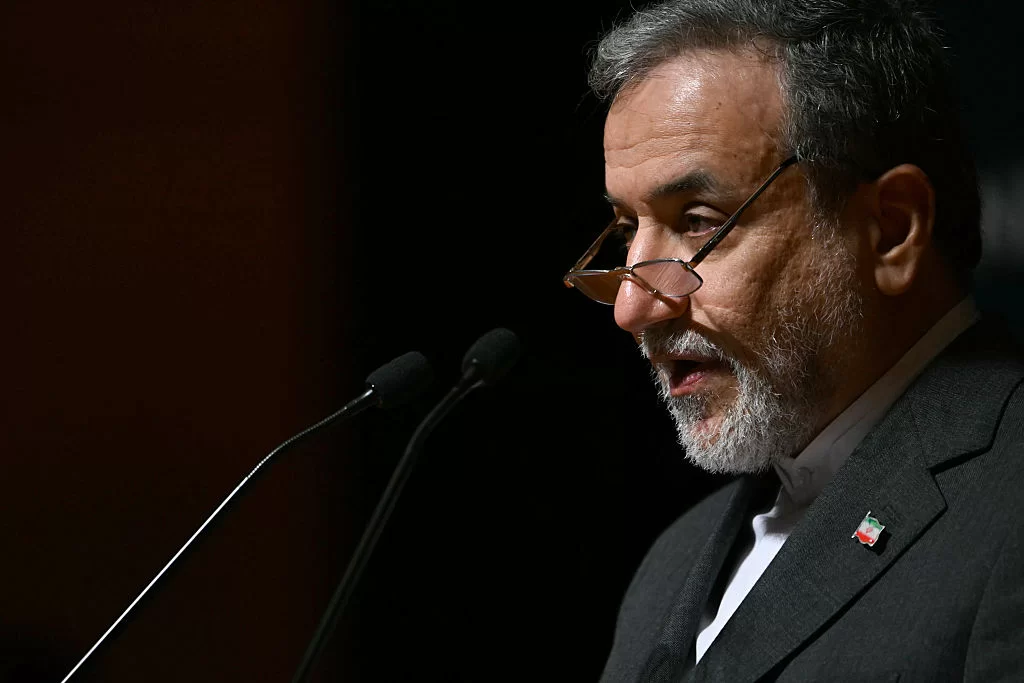- Monday, June 23, 2025
After US bunker-buster strikes cripple Iran’s Fordow nuclear plant and Trump hints at regime change, Tehran threatens to close the Strait of Hormuz, risking global oil disruption as tensions with Israel and the US escalate.

By: Vibhuti Pathak
The conflict in the Middle East escalated sharply after the United States, under President Donald Trump, launched a series of airstrikes on three of Iran’s most critical nuclear facilities—Fordow, Natanz, and Isfahan—on June 22, 2025.
Utilizing advanced warplanes, submarines, cruise missiles, and 30,000-pound bunker-buster bombs, the US targeted Iran’s deeply buried uranium enrichment complexes, particularly the Fordow site, which lies nearly 300 feet underground.
President Trump declared the operation a “historic moment,” claiming the sites were “completely and totally obliterated” and warning Iran to agree to end the war.
“The damage to the Nuclear sites in Iran is said to be “monumental.” The hits were hard and accurate. Great skill was shown by our military. Thank you!” –President Donald J. Trump pic.twitter.com/BJQPHa7XT6
— The White House (@WhiteHouse) June 22, 2025
Iran Vows Retaliation: “We Will End This War”
In response, Iranian officials issued a series of fiery warnings. Ebrahim Zolfaqari, spokesperson for Iran’s Khatam al-Anbiya central military headquarters, addressed Trump directly: “Gambler Trump, you may initiate war, we will be the ones to conclude it”. Iran’s military leadership stated that the US attack had expanded the range of legitimate targets for Iranian forces, signaling a willingness to strike US interests in the region.
While Iran has continued to fire missiles at Israel, it has so far refrained from direct attacks on US bases or disrupting the flow of oil through the Strait of Hormuz—a critical chokepoint for 20 per cent of global oil shipments.
However, Iran’s parliament has approved a move to close the Strait, pending approval from Supreme Leader Ayatollah Ali Khamenei, a move that could send oil prices skyrocketing and trigger a global economic crisis.
Ongoing Air and Missile Exchanges
The situation on the ground remains volatile. Israel has conducted multiple airstrikes on Iranian military targets, including in Tehran and Kermanshah, reportedly killing over 400 people, mostly civilians, according to Iranian sources.
Tehran, a city of 10 million, has seen mass evacuations as residents flee ongoing bombardment. Iran’s retaliatory missile strikes on Israel have killed 24 civilians and injured hundreds, marking the first time Iranian missiles have penetrated Israeli defenses.
Despite these exchanges, Iran’s ability to retaliate is seen as diminished after Israel’s recent military successes against Hezbollah in Lebanon and the fall of Syria’s Bashar al-Assad, two of Iran’s key regional allies.
Trump Raises Prospect of Regime Change
President Trump, while insisting the US aims only to destroy Iran’s nuclear program, openly speculated about regime change in Iran in a social media post, asking, “If the current Iranian Regime is unable to MAKE IRAN GREAT AGAIN, why wouldn’t there be a Regime change???” This rhetoric has further inflamed tensions, with Iran vowing “everlasting consequences” if the US continues its intervention.
Oil Markets on Edge
Global oil prices surged in response to the US strikes and the threat of a possible closure of the Strait of Hormuz. Brent crude briefly jumped above $81 a barrel before settling lower, as traders assessed the risk of a major supply disruption. Analysts warn that even a temporary closure of the Strait could send prices soaring to $120 or $150 per barrel.
Last week, we were in negotiations with the US when Israel decided to blow up that diplomacy.
This week, we held talks with the E3/EU when the US decided to blow up that diplomacy.
What conclusion would you draw?
To Britain and the EU High Rep, it is Iran which must “return”…
— Seyed Abbas Araghchi (@araghchi) June 22, 2025
Diplomatic Maneuvers and Global Reactions
Iran’s Foreign Minister Abbas Araghchi traveled to Moscow for urgent talks with President Vladimir Putin, seeking to coordinate strategy as the crisis deepens. Russia has condemned the US and Israeli strikes but has stopped short of offering military assistance to Iran, instead expressing willingness to mediate.
Internationally, reactions have been swift and divided. China and Russia strongly condemned the US attacks, while the European Union and Malaysia called for restraint and a return to negotiations. The US maintains that its actions are limited to neutralizing Iran’s nuclear capabilities and are not intended to trigger a wider war or regime change.
The US-Iran conflict has entered a dangerous new phase, with both sides trading threats and military strikes. Iran’s warning to “end the war” and the looming possibility of a closure of the Strait of Hormuz have put global markets and governments on high alert, as the world waits to see if diplomacy can prevent further escalation